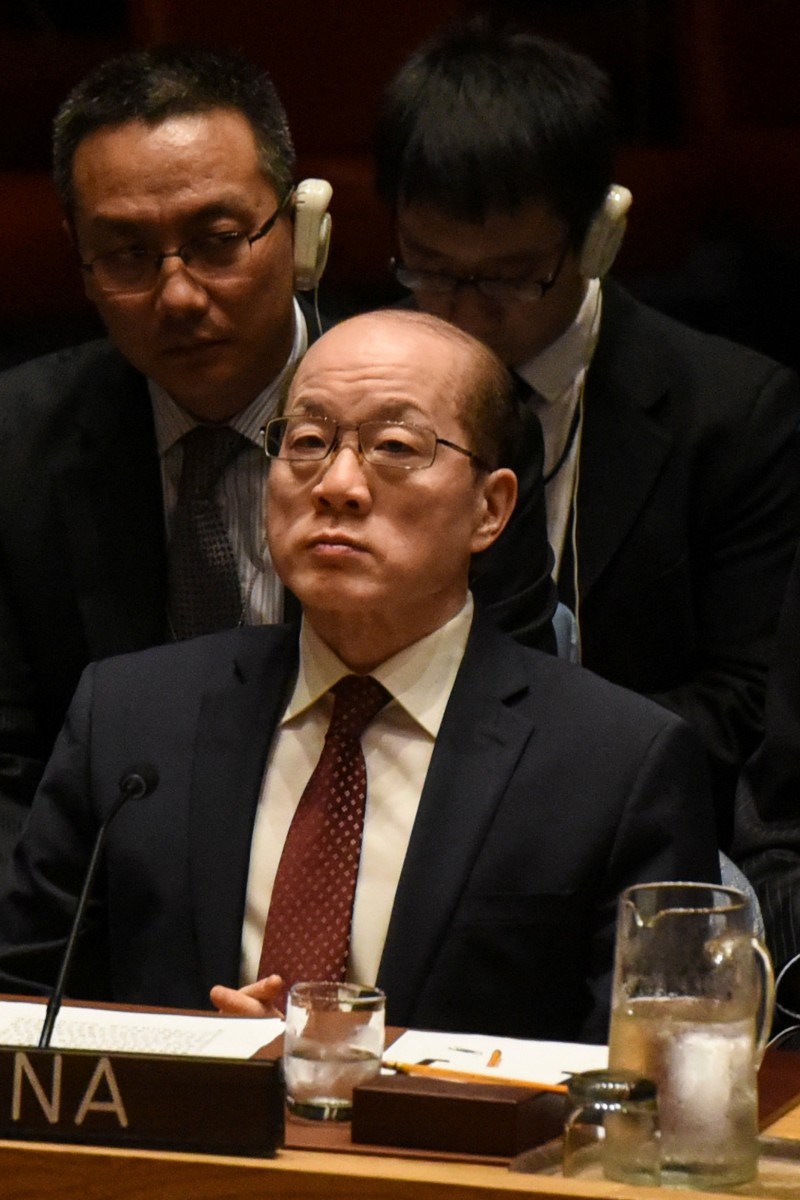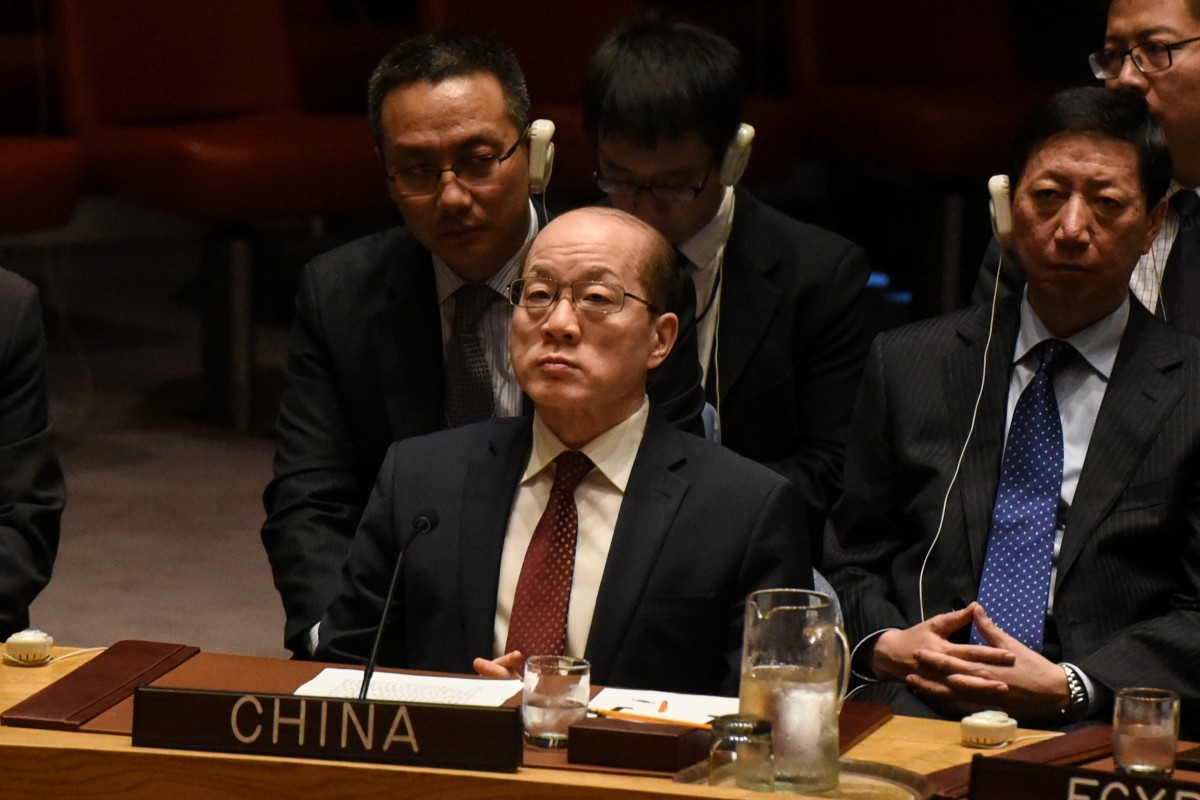
The United Nations' new sanctions on North Korea: what do they mean?
The UN Security Council has universally adopted new sanctions on the communist country, including restrictions on oil shipments, to punish Pyongyang for its sixth and largest nuclear test
 Chinese Ambassador Liu Jieyi listens to remarks during a United Nations Security Council meeting on North Korea at the United Nations in New York City
Chinese Ambassador Liu Jieyi listens to remarks during a United Nations Security Council meeting on North Korea at the United Nations in New York CityAll the countries on the UN Security Council have agreed to new sanctions on North Korea, including limits on oil shipments, to punish Pyongyang for its sixth and largest nuclear test.
But the United States toned down its initial proposals to get China and Russia to agree.
Here are some key questions on UNSC resolution 2375, and its attempt to end the North’s nuclear weapons and missile programmes.
What impact will the oil measures have?
The new resolution ends natural gas shipments to North Korea, keeps crude oil shipments at their current levels, and puts a limit on refined oil products such as petrol and diesel.
North Korea has little oil of its own, relying on imports to keep its citizens and soldiers moving.
At first, the US initially wanted to ban oil, which China - North Korea’s sole ally and main trading partner - strongly opposed.
Instead the resolution limits crude oil shipments from any country to the amount sent to the North in the last 12 months.
Beijing does not publish statistics for crude oil shipments to North Korea, keeping it secret, but is believed to supply around 4 million barrels a year.
The resolution also limits the North to importing 2 million barrels a year of refined oil products - representing a 15 per cent cut based on UN-WTO International Trade Centre estimates, although some analysts put the effect as high as 56 per cent.
“It’s a red light for the growth of the North Korean economy,” said Cheong Seong-Chang of Seoul’s Sejong Institute, “but will not have huge impact on North Korea’s military because the crude oil supply remains the same”.
Most importantly, the resolution includes an exemption for “livelihood purposes” - similar to clauses in past resolutions that have been used as loopholes.
Kim Hyun-Wook, professor at the Korea National Diplomatic Academy, warned there are “no means to check how much crude oil is delivered through the pipeline” between China and North Korea.
Koo Kab-Woo of the University of North Korean Studies in Seoul said the measures carried symbolic value as the “first US attempt at touching North Korea’s economic lifeline”.
How significant is the textiles ban?
The resolution bans the import and export of textiles - both fabric and clothing - by the North.
Textiles are one of North Korea’s major exports, estimated by Rajiv Biswas of IHS Markit to value US$750 million (HK$5.86 billion).
Analysts say the move could cut off a major source of foreign currency for Pyongyang.
China supplies materials to the North, where they are made into clothing in factories using cheap labour, and re-exported to China.
Most go to China and Russia, so the effects will depend on enforcement by Beijing and Moscow, said Koo.
A UN report published at the weekend said Pyongyang collected at least US$270 million over a six month-period this year by exporting “almost all of the commodities prohibited” by existing sanctions.
What about overseas workers?
The resolution stops countries from giving new permits to the roughly 93,000 North Korean labourers working abroad.
Their toil, mainly at construction sites in Middle Eastern countries as well as Russia and China, earns revenue for Pyongyang.
There is an exemption for existing contracts. Analysts are sceptical about any immediate effects of the ban, but say it could increase pressure on Pyongyang over time.
Will cargo inspections increase?
Under the measure, countries are authorised to inspect ships suspected of carrying banned North Korean cargo - but must first seek the consent of the vessel’s flag state, limiting the impact.
Washington had sought authorisation for searches by force, which Koo said China and Russia “strongly opposed”.
North Korea is suspected of engaging in arms trade with countries in Africa and the Middle East.
The UN report said it was investigating “chemical, ballistic missile and conventional arms cooperation” between North Korea and Syria.
Will the sanctions curb Pyongyang’s ambitions?
Analysts say the sanctions were significantly watered down from the initial draft proposal to get China and Russia on board and are sceptical about whether they will curb Pyongyang’s nuclear ambitions.
North Korea is already under multiple UN sanctions but has still made rapid progress in its nuclear and missile programmes.
“It is not enough to cause pain,” said Go Myong-Hyun at the Asan Institute of Policy Studies.
Instead, said Koh of Dongguk University, the new sanctions will drive Pyongyang to accelerate its programmes.
“North Korea will try to become a nuclear state as quickly as possible to negotiate with the US as an equal before the effect of the sanctions fully kicks in,” he said.
Pyongyang habitually attributes UN measures to the “hostile” US, which it blames for the body’s actions.
And Kim Hyun-Wook of the Korea National Diplomatic Academy, predicted: “The sanctions will only provide North Korea with an excuse for further provocations, such as an ICBM launch.”